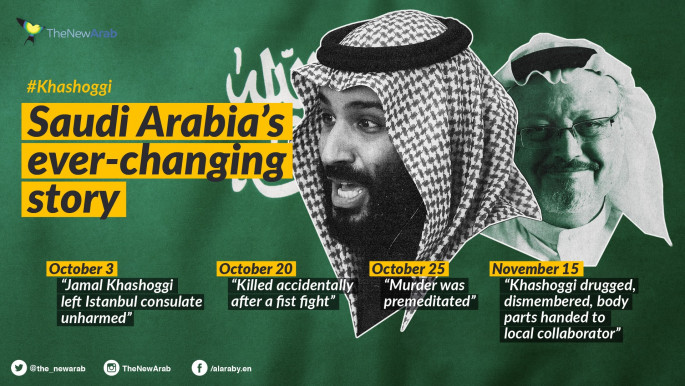
Saudi-US dynastic dealings: MBS and Kushner's murderous cover-ups for inflated arms deals
The purpose, as implied by the ABC report, was to enable Trump to claim his relationship with the Saudis was producing tens of thousands of American jobs.
No matter that the "deal" was only a non-enforceable memorandum of possible intent. It enabled Trump to boast of job creation leading up to congressional elections, so a win-win situation for him and the Saudis. He had his PR coup; the Saudis committed to nothing.
The real problem with these shady dealings is less that they represent willful misrepresentation by all parties concerned, than that they reflect the transformation of the American presidency and the institutionalised foreign policy bureaucracy in which it is embedded, into a sort of an American court of King Lear attended by his son-in-law.
The arms deal was, therefore, the equivalent of two kings swapping favours.
The cost of this informal, duplicitous dealing is that it puts Washington and Riyadh on the same footing, in which the leaders of both camps rely upon one another for political favours.
So when it came time to collecting a return favor, Trump had no choice but to oblige. The key favour here, is complicity in the cover up of Muhammad bin Salman's involvement in the brutal killing of Jamal Khashoggi.
 |
The cost of this informal, duplicitous dealing is that it puts Washington and Riyadh on the same footing |  |
The longer term favours are American backing for the Crown Prince himself, and his ever more adventurous, ill-considered foreign policy. US integrity and interests, in short, have been compromised by the tawdry dealings of Jared Kushner and his father-in-law with the Saudis.
Yet more damaging in the long term is that Washington's backing of Saudi Arabia has now institutionalised a partisan divide over Middle East policy in American politics.
 |
|
President Obama, always distrustful of the Saudis, threw in his lot with the Iranians. Trump may have taken issue with the JCPOA for being an unsatisfactory agreement from the US position, but he was wrong to abrogate it, rather than to work to stiffen it.
Switching from backing Iran to supporting Saudi Arabia reflects US foreign policy weakness, not strength. US policy in the Middle East has become the plaything of partisan politicians, not the product of reasoned calculations by professionals of American national interests.
Those interests in this case are to balance off Iran against Saudi Arabia, not to enter the fray on either side.
 |
The key favour here, is complicity in the cover up of Muhammad bin Salman's involvement in the brutal killing of Jamal Khashoggi |  |
Neither country is a paragon of virtue; neither is advancing US interests in the region; so neither deserves positive personal engagement by the US president and cover ups by him of dastardly deeds, of which both Iran and Saudi Arabia are guilty.
The story may also be even worse than it presently seems.
The ABC report implies that Kushner's motive was to improve Trump's and the Republicans' electoral prospects.
But it might also be the case that in addition to that motive Kushner stood to reap monetary gains from his dealings with Mohammed bin Salman.
The disease of corruption in Riyadh in that case would have spread to the US capital, interacting there with equally virulent, home grown strains of it.
Robert Springborg is the Kuwait Foundation Visiting Scholar at Harvard University's Middle East Initiative, Belfer Center. He is also Visiting Professor in the Department of War Studies, King's College, London, and non-resident Research Fellow of the Italian Institute of International Affairs.
Join the conversation: @The_NewArab
Opinions expressed in this article remain those of the author and do not necessarily represent those of The New Arab, its editorial board or staff.





 Follow the Middle East's top stories in English at The New Arab on Google News
Follow the Middle East's top stories in English at The New Arab on Google News


